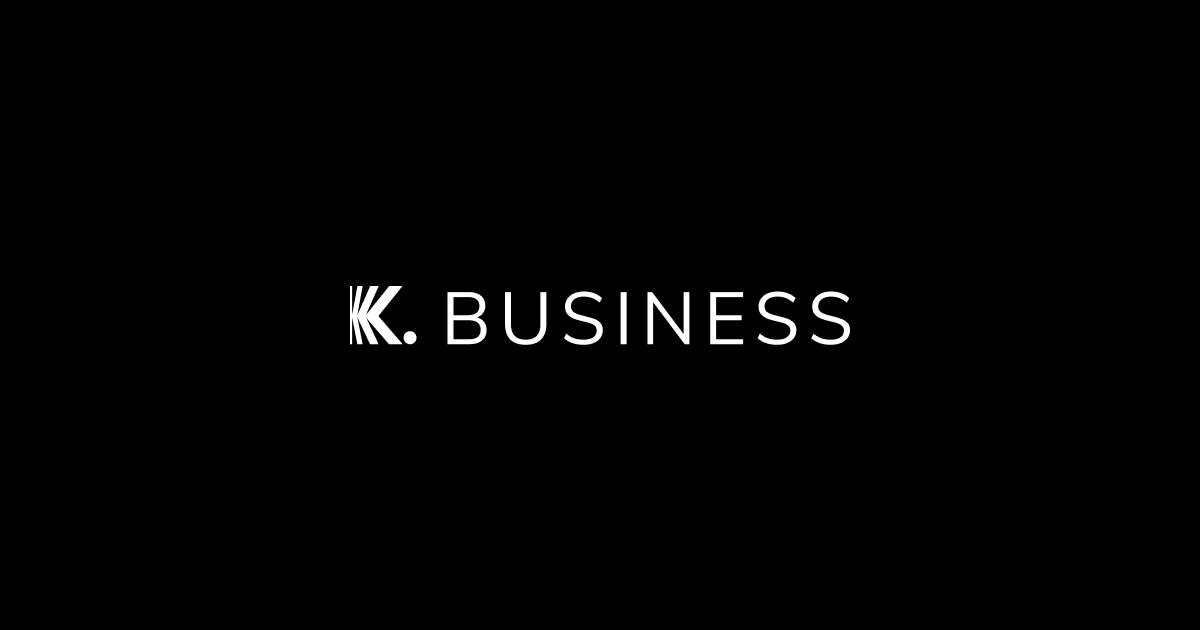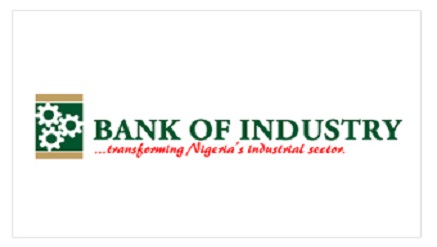E-Financial
SMEs and Freelancers learn ways to increase revenue from experts at Kuda Business partnerships webinar

Kuda Business, the enterprise-facing offshoot of Kuda, held a webinar for business owners in Nigeria seeking to leverage partnerships to maximise value from their ventures in this economically trying times.

Facilitated by sales experts and a notable entrepreneur, the webinar titled, ‘Leveraging Partnerships to Make More Revenue’, was held on Thursday, February 29, 2023.
Mrs. Vivian Ekwegh, the CEO of declutterdotcom; Maryam Ibrahim, Strategic Partnerships Manager (B2C) at Kuda; and Oluseye Babatunde, Strategic Partnerships Manager (B2B), Kuda, all spoke at the webinar aimed at freelancers and SMEs.
Speaking about the nature of business partnerships, Mrs. Ekewgh mentioned that partnerships are “a wholesome way to grow [a business].”
Furthermore, the declutterdotcom CEO advised Nigerian business owners to look for companies with similar values.
“Look for another business that is complementary, or even a competitor who has similar strengths.”
“Your reach is beyond your network because you’re now partnering with someone who has done it for a while,” she said, sharing a personal anecdote of how partnering with logistics services helps her business provide value to customers.
“At this rate, people should collaborate, not compete. Because nobody has it all,” she said.
Addressing the challenge of identifying potential customers, Babatunde shared that it was important to look out for compatibility. “Things to look out for, be sure you are compatible. Complementarity is very important. If you don’t understand the value chain, where you play, you won’t know how you can complement. After this, you begin to check out their integrity, you can also check out their track record of success. Then, read reviews about them.
“Do as much as possible to learn more about the company. Don’t just assume you know these people. You’re going into a different relationship with different dynamics,” he said.
On her part, Ms. Ibrahim shared that businesses should conduct “extensive research”. “You need to do a competitive comparison of the different players in the company, who is on top, which business will be beneficial for me. Then you need to be sure of the reputation and credibility of the organisation you want to partner with.”
The speakers shared their wealth of experience with attendees, using personal examples to drive home the importance of vetting partnerships properly.
Mrs. Ekwegh shared an experience with a delivery firm she had in the past, which was as a result of a difference in values. “We had to partner with a delivery firm, they contacted us. We connected them with a few clients. They didn’t understand business integrity or following through with customers. So it was so bad. Sometimes they damaged our products before they got to the customers’ side.
“Other times, you want to collaborate with a business. Some of them became so rotten, they began to scam the customers. It was a big challenge for the company because we identified with them. We spoke for them. It came back to bite us back.
“The biggest challenge I’ve had to face is deliveries with companies, some started scamming the customers and taking the money for themselves,” she shared.
Harping on the importance of negotiation in the process of establishing partnerships, Babatunde advised business owners to go to the negotiation table with clarity and honesty.
“I never go to a negotiation table without my clear ask—my clear terms. There might be some tweaks and adjustments along the way. You need to go with honesty. I don’t tell people what I cannot do. I see a lot of people go into partnerships trying to pad the figures and so on. It will haunt you later. If you cover Lagos and Ibadan, don’t say you cover the whole of the southwest. If your customer base is 50, say it’s 50,” he explained.
Ibrahim advised business owners to highlight the value they are bringing to the table.
The B2C partnerships expert shared that having a unique selling point is key.
“It’s very important to highlight the value you are bringing to the partnership. You need to show them why they are choosing you, or why they should go with you. You need to have your unique selling point,” she said.
But she also advised business owners to remain flexible.
“You can’t be stone-headed and say ‘it’s my way or it’s no way’. Maybe not in the key areas, but be willing to be flexible,” she said.
Casting some attention to the economic landscape in Nigeria, the speakers also shared advice for businesses to help them remain viable despite prevalent circumstances.
“Don’t just be a Lone Ranger. Network. There are things you will not know are possible until you get into a space that shows you a niche or an opportunity you can explore. Ask questions. You don’t know it all,” he said.
Mrs. Ekwegh shared that “letting other people in” is also important to scale a business and its operations.
“Most businesses in Nigeria are borne out of a place of pain. A lot of the time you’re the everything for your business. You’re the CEO, the customer service, everything. And doing it alone can break your back. If you really want to go far you have to let other people in,” she said.
Kuda Business continues to empower business owners and SMEs to help them achieve profitability and scale their operations.
The platform’s webinar series, hosted monthly, helps businesses access knowledge from entrepreneurs and experts, providing a community for experienced voices to share practical knowledge.
E-Financial
CBN Expresses Concern Over Foreign Investments in Nigeria Fintechs

The Central Bank of Nigeria in its 2025 Fintech Policy Insight Report, has raised concern over Nigeria’s fintech sector heavily dependent on foreign investment, exposing it to swings in global markets.

The report said the sector has shown resilience despite global economic pressures, but warned that reliance on external capital leaves it vulnerable to market fluctuations.
It would be recalled that startups in the country raised $520m in equity funding in 2024, down from about $747m in 2019, when Nigeria captured roughly 37 per cent of all African startup investment.
This performance, amid significant global macroeconomic gyrations, underscores Nigeria’s position as a key hub for financial innovation. The sharp rise in interest rates in advanced economies during 2022 contributed to a slowdown in venture capital funding.
“These dynamics highlight the importance of developing domestic funding avenues, such as leveraging Nigeria’s capital markets, to reduce currency risk and sustain fintech growth,” the apex bank stated.
Olayemi Cardoso, CBN Governor, said Nigeria is undergoing a rapid and significant financial evolution. Over the past decade, the nation’s fintech landscape has grown from a handful of startups into one of Africa’s most vibrant innovation ecosystems.
“Even amid global economic headwinds, Nigerian fintech firms continued to attract investment and drive change. Today, with improved stability of our currency and domestic economy, it is clearer than ever that financial innovation can advance inclusion at scale,” the executive commented on the report.
In addition to funding, the central bank underscored Nigeria’s continued leadership in digital financial infrastructure. More than 25 per cent of all electronic transactions in Africa’s most populous nation are processed via real-time payment channels, with close to 11 billion transactions processed in 2024, up from five billion in 2022. The report described Nigeria’s instant payments platform, NIBSS NIP, as among the most mature and widely adopted globally.
The report also mentioned the need to strengthen system integrity and reputation, pointing to compliance reforms, anti-money laundering supervision, and consumer protection measures as key priorities for sustaining investor confidence.
By focusing on domestic funding, regulatory modernisation, and innovation infrastructure, the CBN aims to position Nigeria not only as a fintech front-runner but also as a rule-setter whose regulatory lessons are relevant to peer emerging and high-growth economies globally, the central bank said.
Stakeholders surveyed by the CBN also cited compliance costs as a significant challenge to innovation. According to the report, 87.5 per cent of respondents said that the cost of meeting regulatory and risk requirements significantly impacts their capacity to innovate, while delays in product approvals and regulatory timelines also remain major bottlenecks.
The report noted that 62.5 per cent of fintech firms plan to expand regionally, and there is strong support for regulatory pass-porting frameworks to enable compliant expansion into other African markets. However, the CBN warns that such cross-border growth requires a stable funding base and coordinated regulation.
E-Financial
UBA’s Easy and Instant Account Opening Thrills Returnee

After a few years abroad, I returned to Nigeria and faced a dilemma. Let me tell you all about it.

UBA
A few days ago, I was dragging my luggage through Murtala Muhammed International Airport. Everything felt bright and beautiful. Not necessarily in aesthetics, but in the vibrant colours, sounds, and energy all around. After three intensive years in the UK, I was finally back home. Ready for the hustle and bustle of Lagos life, and yes, the comfort of my parents’ home.
The plan was simple. Settle down and get my life on track. I’d sorted the job, and I had my person. But then came my dilemma. Money!. This doesn’t mean I was short of it or had too much of it. The real issue is where to actually keep and manage it in this country with daily dramatic happenings. With just two weeks left before I resumed at my new workplace, I had no time for long queues, endless paperwork, or the classic “Nigeria bank stress.” So, I needed an account, and I needed it fast.
So I turned to my best friend, Google, and typed, “Instant account opening in Nigeria.”
In less than a second, I was redirected to the United Bank for Africa instant account opening portal. A few taps later, and I had a fully functional account. Just like that. I could receive my funds, transfer my funds, and start building my financial life here again.
In less than a second, I was redirected to the United Bank for Africa instant account opening portal. A few taps later, and I had a fully functional account. Just like that. I could receive my funds, transfer my funds, and start building my financial life here again. Talk about ease, and this beautiful experience truly exemplified that definition
I was genuinely amazed. It felt too easy, almost suspiciously easy. But it was real, I mean, really soft like they were just thinking all about me while developing this new feature.
If you’re like me and pressed for time, avoiding unnecessary stress, or just ready to sort your finances without the hassle, consider this your sign.
UBA’s instant account opening is a game-changer. No queues to cut into your precious time. Just you and your phone, minutes away from being banked.
Get started here: https://aop.ubagroup.com
Trust me, if I could do it between unpacking and settling in, you can do it too. Your future self will thank you.
E-Financial
BOI Secures CBN Nod for Sharia Banking, Unlocks Ethical Funding Boom

Bank of Industry (BOI) has received Central Bank of Nigeria (CBN) approval to launch a Non-Interest Banking (NIB) Window, expanding ethical financing for underserved businesses nationwide.

BOI
The move positions BOI to mobilise Sharia-compliant funds, finance assets and raw materials without interest, and target MSMEs plus high-impact sectors previously sidelined by conventional loans.
Divisional Head of Public Relations, Theodora Amechi, said the window aligns BOI with social goals, boosting real economy support and sustainable industrial growth.
MD/CEO Dr. Olasupo Olusi hailed it as a “pivotal moment,” enabling the bank to serve faith-sensitive enterprises shunning riba-based loans.
Analysts see it as CBN’s vote of confidence in BOI’s governance, set to spur innovation and inclusive financing for Nigeria’s ethical business segments.
Established in 1959 as Nigeria’s top Development Finance Institution, BOI now strengthens its drive for broad-based economic transformation.

 General News3 days ago
General News3 days agoGlobacom Donates ₦1Bn to Lagos State Security Trust Fund

 Telecom3 days ago
Telecom3 days agoAirtel Nigeria Commits to Upgrade of its Network Infrastructure for Improved Quality of Service

 E-Business3 days ago
E-Business3 days agoPwC Reveals AI Scaling Gap Slows Africa’s Digital Transformation

 E-Financial3 days ago
E-Financial3 days agoEcobank Profit Jumps 29 Percent to N950Bn

 News3 days ago
News3 days agoCIoD, NIPSS Partner to Deepen Governance, Leadership Standards

 News3 days ago
News3 days agoNRS Chairman Outlines Ways Nigeria can Move from Potential to Economic Prosperity

 General News3 days ago
General News3 days agoWIEG to host Nigeria’s first International Investment Summit in Lagos

 News3 days ago
News3 days agoOrya, Ex-NEXIM MD Jailed 490 Years for N2.4Bn Fraud















